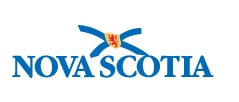Prepare to Win!
Interviewing for Provincial Government Opportunities:
Reason to Be Happy:
- Your resume worked; your first step in the door.
- The Hiring Manager wants to know more about you and your skills/experience relating to the role.
- You have the required skills and experience now its time to sell yourself well.
- Prepare Well To Win.
Interview! Meeting With An Objective:
- For the Organization, an Interview is a chance to.
- Reviews candidate’s experience and abilities.
- Can you do the job? (skills, abilities, qualifications)
- Will you do the job? (interest, attitude & motivation)
- Verifies the information obtained and Obtain additional information from the applicant.
- Give the candidate necessary facts and information about the job and the organization.
- Sell the organization and the job.
- Reviews candidate’s experience and abilities.
- For you an Interview is the chance to sell yourself; Convince you are The One.
Type of Interview Questions:
- Behavioral – candidate is asked to describe past performance and behavior in order to determine knowledge skills, and abilities e.g. Tell me about a time when you took initiative in improving a process without being asked to do so?
- Situational – candidate is asked hypothetical type questions e.g What would you do if you were unable to meet a deadline?
- Technical/knowledge/skill based – candidate asked to describe their skills e.g Tell me about your experience with JAVA script and what projects you delivered.
- Resume based – candidate is asked to elaborate on or further describe something on the resume.
Specific to Government Interviews:
- You will be asked for accommodation required.
- Questions will are usually sent 15-30 mins prior to the interview to allow for preparation.
- You can bring in notes.
- Mostly behavioral/competency based interviews against LEADS capabilities.
Preparing for the Interview:
- Research! Research! Research!
- The organization/department; The job; The industry.
- Talk to people you know who works there.
- Know Yourself! Ask your self how what skills/ competencies you have for the role!
- Focus on the posting applied for and prepare yourself to demonstrate your experience/skills/competency.
- Anticipate questions and identify relevant examples/answer using STAR.
- If you know who the Panel members are look up their LinkedIn profile.
- Ask for accommodation if needed.
- If in-person physically check the place before interview.
- For virtual interviews check all the connection and links.
- Prepare questions.
- Practice! Practice! Practice!
Matching Skills to Requirements:
- Consider how you can meet the employer needs:
- Communication – presentation to class.
- Team work – example from co-op.
- Leadership – class rep, committee work.
- Initiative – fundraising for charity.
- Customer care – working in retail industry.
- IT – designed website.
- Commercial Awareness – treasurer experience.
On the Day:
- Arrive 10 mins early if in-person.
- Log in 5 mins early if virtual to check connection and sound.
- Make a positive first impressions.
- Dress appropriately.
- Have a positive body language.
- Focus on your entrance, introductions & handshake.
- Smile and make eye contact (as appropriate).
- Be interested and enthusiastic.
- Leave positively: thank the interviewer.
Answering Questions:
- listen carefully and answer the question fully.
- seek clarification if necessary.
- speak slowly and clearly.
- have evidence to support claims.
- describe positive outcomes.
- Use STAR to answer, avoid Yes/No response.
- Situation: describe the situation, problem, or issue that you encountered (10%).
- Task: describe the tasks/responsibilities you took on to help solve the problem (10%).
- Action: discuss the steps you took to affect a solution (70%).
- Result: describe the outcome, if possible, with numbers/impact (10%).
Tips for Successful Interview:
- Interviewing is a two-way process
- Never give “yes” or “no” answers.
- Listen carefully and react.
- Use specific examples to make your case.
- The interview begins the minute you step onto the company lot.
- Think like an employer.
- Don’t criticize past employers or co-workers.
- Be aware of illegal questions.
- Maintain professionalism, even if the employer does not.
- Be prepared for the unexpected.
- Be well-groomed.
- Be positive!
- Come prepared with you own questions.
